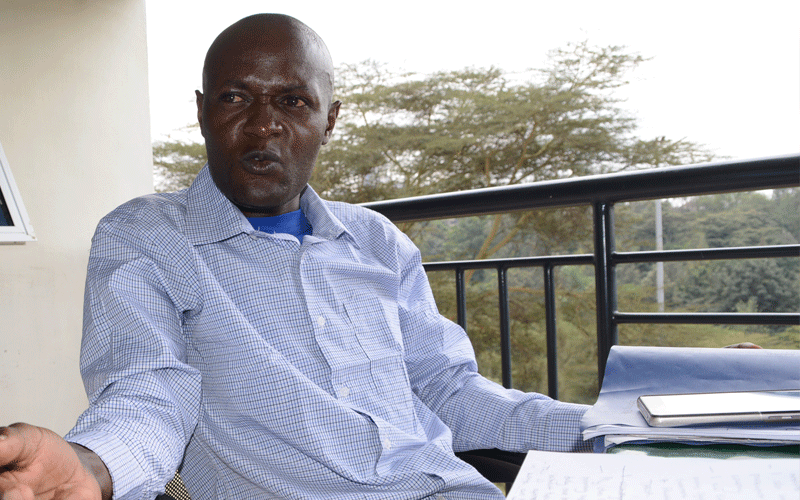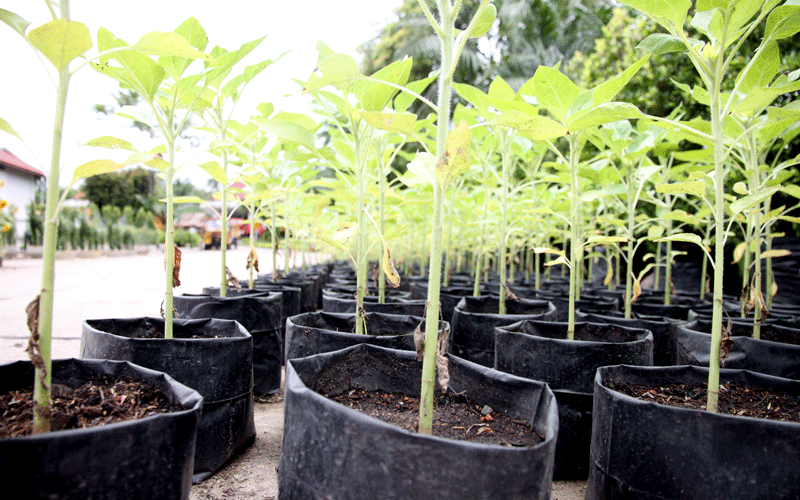Youth changing the environment one tree at time
By Peter Ngila, September 24, 2019For Kelvin Nzyoka, nurturing a tree to maturity, instead of focusing energies on only planting, is the most important part of increasing forest cover.
“I usually sensitise learners I work with not to be concerned with planting, but growing trees, which basically means adopting and taking care of the tree until maturity,” says Nzyoka a conservationist.
At the moment, the country has only seven per cent forestry cover, with plans to attain 10 per cent cover underway.
While planting trees seem ideal, nurturing the tree to maturity is the only sure way to increase forest cover.
“We should only be concerned about forest cover increment after a tree has matured,” Nzyoka says.
His passion for trees started when he was a pupil in Kangundo. Today, Nzyoka, 29, is a volunteer environmentalist in Kasarani sub county, Nairobi.
His programme is specifically based on schools, simply because learners are easily accessible.
“I saw how deforestation leads to extended dry spell and drought and I knew that environmental conservation was the only answer.
I decided to work with schools because learners understand the environment in a deeper way,” Nzyoka says.
He started the programme back in 2016 when he noticed that people were ignorant about the environment. He would later find out that lack of right information on tree-planting was to blame..
He then planted 10 trees in Kalimoni Primary School in Juja. “In 2017, since I was in school and couldn’t do much, I started a tree nursery opposite Zetech College along Thika Superhighway.

By the end of 2018, the nursery was big enough to provide seedlings to the schools I visited.
By the end of last year, I had over 5,000 seedlings, some of which I sold to finance my environmental efforts,” he says.
Nzyoka took advantage of Kasarani sub county’s high number of learners, to start planting trees in the region.
To test the programme’s viability, he planted 16 tree seedlings at Green Estate Primary School and later planted another 16 trees at Kahawa West Primary School.
He then appointed pupils to take care of the growing trees and keeps tabs on their progress over time.
He received positive response from the institution, but faced the challenge of transporting seedlings using public transport to the schools.
Seedling donation
His efforts started paying off early this year when the district officer of Kasarani told him to deliver tree seedlings to Kasarani Primary School, 14km away from his nursery, for it had more pupils to adopt them.
Since, by this time, Nzyoka could hire a delivery vehicle thanks to profits from his nursery, he donated 100 seedlings to the school.
“From there I approached the new Kiwanja Secondary School, which became the first school to dedicate total cooperation to tree planting.
After I donated 100 seedlings to them, the Kenya Forestry Service rewarded me with 200 more seedlings, which I also gave to Kiwanja. The school principal even offered her car to deliver the seedlings.
If you go to the school today, you will find over 250 trees on their way to maturity.”
For Nzyoka, weather conditions are vital before planting a tree, because different trees can perform differently in different areas.
Because Ruai, one of the areas Nzyoka is undertaking his programme, is a semiarid, he has to plant indigenous trees, for they can perform well in both wet and hot areas.
Nzyoka, who is orphaned, educated himself through college. In college, he studied Community-based Development, because he wants to impact the community.
Environmental clubs
“When I completed secondary school in 2012, my grandmother encouraged me to study to the highest level, and I’m hoping to still go back to school.
Since I am self sufficient financially through selling of tree seedlings, I have decided not to disturb my grandmother with my college fees,” he adds.
Nzyoka, alongside environmental groups, is currently working on a programme of planting over 100,000 trees along the Kasarani River this year for the river’s total rehabilitation. He calls for government and environmental groups to join in the cause.
He cites lack of funds as one of his biggest challenges. “Also, public transport is the only means of transport, especially during mobilisation phase.
This is because the government vehicle is only available during the planting day. Lack of good fences in some schools jeopardises planted seedlings,” Nzyoka says.
To help address above challenges, he has reached out to the government and environmental institutions – from where he hopes for positive outcome.
Nzyoka has so far partnered with government institutions like the Kasarani sub county Agricultural Department to transport seedlings to unreachable parts in the region.
“I’m currently soliciting for funds to finance environmental clubs to plant trees.
This would create employment opportunities for the youth as well as keep them off bad habits such as drugs and also give back to the society by donating some tree seedlings,” he concludes.
